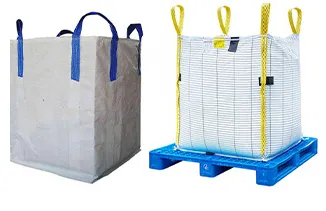Off-Grid 3 Phase Solar Inverters - Reliable Renewable Energy Solutions
Understanding the 3-Phase Off-Grid Solar Inverter
In the push for sustainable energy solutions, off-grid solar systems have emerged as a popular choice for homes and businesses looking to become energy independent. Central to these systems is the 3-phase solar inverter, a crucial component that efficiently converts the direct current (DC) generated by solar panels into alternating current (AC), suitable for household or industrial use.
What is a 3-Phase Solar Inverter?
A 3-phase solar inverter operates on three separate phases of electrical supply, allowing for a balanced distribution of electricity. This is particularly beneficial in applications with high energy demands, such as commercial buildings or industrial setups. The 3-phase configuration ensures that the electrical load is evenly distributed, reducing the risk of overloading a single phase and enhancing the overall efficiency of the energy system.
Functionality of 3-Phase Inverters
The primary function of a solar inverter is to convert the DC output from solar panels into AC power. The 3-phase inverter takes this a step further by managing the three-phased output, which enhances energy efficiency and stabilizes voltage. This setup allows for better load management, ensuring that large machines and appliances can operate smoothly without dips in power.
Moreover, these inverters are equipped with advanced monitoring systems, allowing users to track energy production and consumption in real-time. This transparency helps users optimize their energy usage and maximize savings on electricity bills.
3 phase solar inverter off grid

Benefits of Off-Grid Systems
Going off-grid means freeing oneself from the traditional energy grid, which can be particularly advantageous in remote areas where access to electricity is limited. Off-grid systems, powered by 3-phase solar inverters, provide several benefits
1. Energy Independence Users generate their own electricity, making them less vulnerable to utility price fluctuations and power outages. 2. Sustainability Harnessing solar energy reduces reliance on fossil fuels, contributing to a lower carbon footprint.
3. Cost Savings Although the initial investment can be significant, long-term savings on energy bills and reduced maintenance costs make off-grid solutions economically attractive.
4. Resilience Off-grid systems provide a reliable power source in emergencies, ensuring that essential services remain operational.
Conclusion
The 3-phase solar inverter is a pivotal technology in the off-grid solar landscape, enabling users to harness renewable energy efficiently and effectively. By investing in such systems, individuals and businesses take a significant step towards sustainable energy use, energy independence, and environmental stewardship. As technology continues to evolve, the reliability and efficiency of 3-phase solar inverters will only enhance, paving the way for a greener future.
-
String Solar Inverter: The High-Efficiency Solution for Smart Solar EnergyNewsJul.14,2025
-
Revolutionizing Rooftop Energy with the Power of the Micro Solar InverterNewsJul.14,2025
-
Power Independence with Smart Off Grid Solar Inverter SolutionsNewsJul.14,2025
-
On Grid Solar Inverter: Powering the Future with Smart Grid IntegrationNewsJul.14,2025
-
Monocrystalline Solar Panels: High-Efficiency Power for the Future of Clean EnergyNewsJul.14,2025
-
Bifacial Solar Panel: A Smarter Investment for Next-Generation Energy SystemsNewsJul.14,2025







